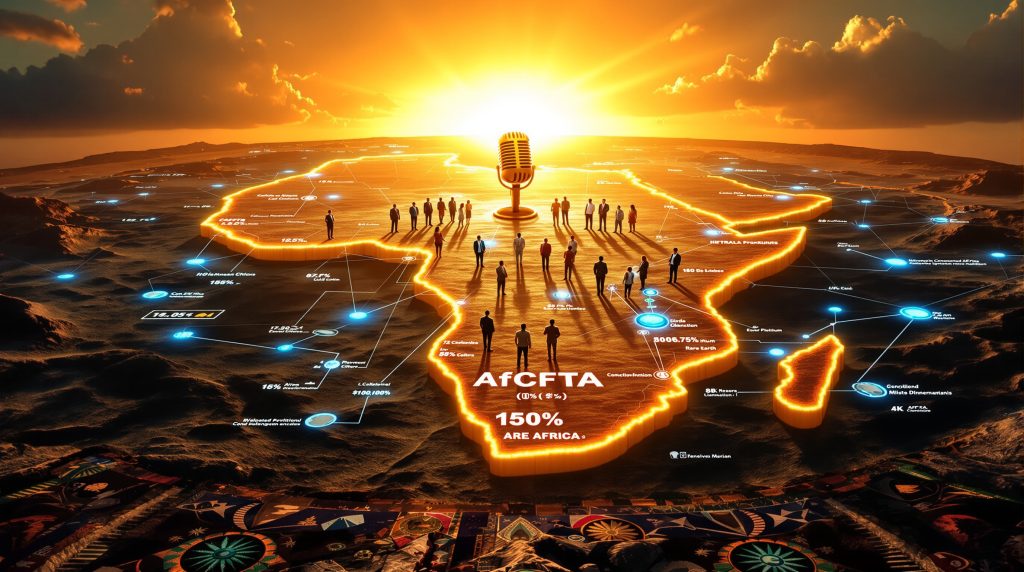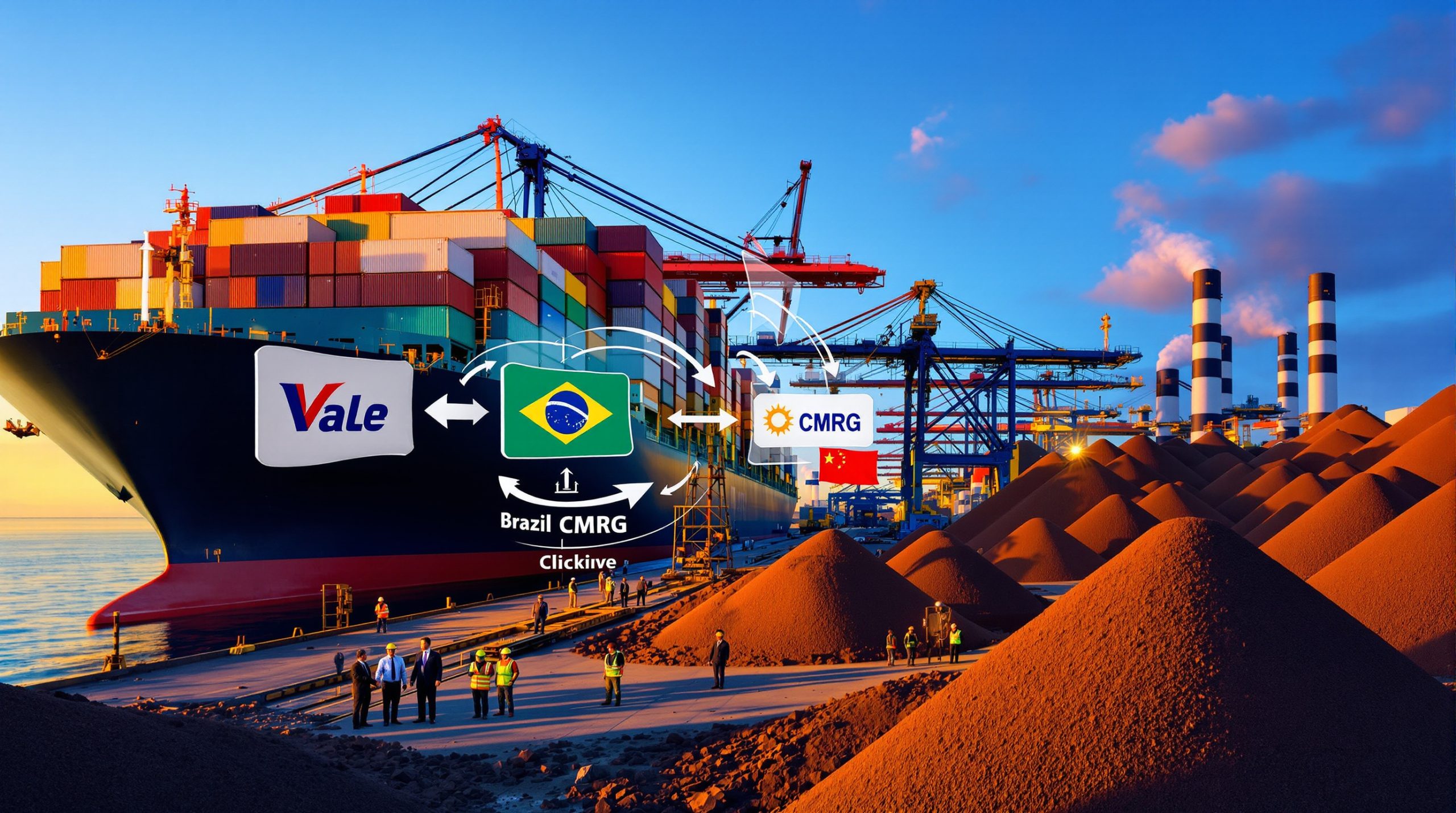Forging a Common African Voice: Understanding Continental Unity
In today's interconnected global landscape, Africa stands at a pivotal crossroads. The concept of forging a common African voice represents more than diplomatic solidarity—it embodies the continent's strategic imperative to amplify its influence on the world stage. This unified approach enables African nations to strengthen their collective position in international negotiations, trade partnerships, and diplomatic engagements.
The Concept of a Unified African Perspective
A common African voice refers to the collective expression of the continent's interests, values, and aspirations internationally. This unified stance allows African nations to leverage their combined strengths when engaging with global powers, international organizations, and multinational corporations. By presenting coherent, coordinated positions on key issues, African countries transform their individual voices into a formidable continental perspective that commands greater respect and attention.
The power of this unity becomes evident when examining Africa's negotiations in climate talks, trade agreements, and resource governance discussions. When speaking with one voice, the continent's 55 nations can more effectively challenge historical power imbalances that have often marginalized African interests in global mining landscape insights and decision-making processes.
Historical Context of Pan-African Unity
The quest for a unified African voice has deep historical roots in the Pan-African movement that emerged in the early 20th century. Visionaries such as W.E.B. Du Bois and Marcus Garvey laid the intellectual foundation for African unity, advocating for solidarity among peoples of African descent worldwide. Following World War II, this vision evolved as African nations gained independence from colonial powers.
A watershed moment came in 1963 with the formation of the Organization of African Unity (OAU), which brought together newly independent states with the primary mission of completing decolonization and dismantling apartheid. The transformation of the OAU into the African Union (AU) in 2002 marked a significant evolution, broadening the focus from political liberation to economic integration and collective development.
This historical progression demonstrates how Pan-African unity has evolved from an idealistic concept to an institutional reality with practical mechanisms for coordination and collaboration.
Why Is a Unified African Voice Critical Now?
The timing for strengthening Africa's common voice has never been more crucial. As global power dynamics shift and new challenges emerge, the continent faces both unprecedented opportunities and complex threats that demand coordinated responses.
Global Economic Power Dynamics
In today's multipolar world economy, influence increasingly correlates with economic weight. Africa, with its combined GDP of approximately $2.96 trillion (World Bank, 2023), possesses significant economic potential but remains underrepresented in global economic governance structures. Key institutions like the World Bank, International Monetary Fund, and World Trade Organization maintain governance structures that often reflect post-World War II power arrangements rather than contemporary economic realities.
A unified approach to trade negotiations could substantially strengthen Africa's position. The African Continental Free Trade Area (AfCFTA) represents a landmark step in this direction, creating a single market of 1.3 billion people. By negotiating as a bloc rather than as individual countries, Africa gains leverage to secure more favorable terms in international trade agreements and investment partnerships.
Addressing Resource Governance Challenges
Africa possesses vast mineral wealth that has paradoxically contributed to what economists call the "resource curse" in many regions. Despite abundant natural resources, many resource-rich African countries have struggled to translate this wealth into sustainable development and inclusive growth.
A unified approach to resource governance can establish stronger negotiating positions with multinational corporations and foreign investors. Collective bargaining power enables African nations to secure better terms in extraction contracts, including local content requirements, knowledge transfer provisions, and environmental protection clauses.
The Africa Minerals Strategy Group (AMSG) exemplifies this approach, bringing together ministerial representatives to align policies on value addition, minerals security, and strategic autonomy. As noted during AMSG's 2025 roundtable, this coordination aims to strengthen the continent's negotiating power in the global minerals landscape.
Climate Change and Environmental Justice
Perhaps nowhere is a unified African voice more urgently needed than in climate negotiations. Africa contributes minimally to global carbon emissions yet bears disproportionate climate impacts through intensifying droughts, floods, and other extreme weather events that threaten agricultural productivity, water security, and human livelihoods across the continent.
At international climate forums, a coordinated African position has proven crucial for advancing climate justice principles. The African Group of Negotiators (AGN) has successfully advocated for recognition of Africa's special circumstances and secured important commitments for climate financing and technology transfer.
This collective advocacy demonstrates how speaking with one voice transforms Africa from climate victim to influential stakeholder in global mining landscape insights.
How Is Africa Building Its Common Voice?
The development of Africa's common voice involves multiple overlapping mechanisms, from continental institutions to regional blocs and specialized diplomatic coordination.
The African Union's Evolving Role
The African Union serves as the primary institutional framework for developing and expressing common African positions. Through its various organs—including the Assembly of Heads of State and Government, the Executive Council, and specialized technical committees—the AU coordinates policy positions on global issues ranging from trade to security.
The AU's Agenda 2063 provides a comprehensive framework for Africa's socioeconomic transformation, with specific milestones for strengthening Africa's global voice and representation. The AU Commission provides technical support for this coordination process, while AU representatives advocate for these positions in international forums.
The establishment of specialized institutions like the African Centre for Disease Control and Prevention (Africa CDC) has further enhanced the continent's capacity for coordinated action, as demonstrated during the COVID-19 pandemic response.
Regional Economic Communities as Building Blocks
Regional Economic Communities (RECs) function as essential building blocks for continental integration and common positions. These regional bodies—including ECOWAS in West Africa, SADC in Southern Africa, and the EAC in East Africa—harmonize policies within their respective regions, creating stepping stones toward continent-wide consensus.
These regional mechanisms follow the principle of subsidiarity, addressing issues at the most appropriate level of governance. By first aligning positions within regions, Africa can build coherent continental positions that reflect diverse regional perspectives and priorities.
The African Continental Free Trade Area (AfCFTA) represents the culmination of these regional integration efforts, bringing together the various RECs into a comprehensive continental framework for economic integration.
Diplomatic Coordination Mechanisms
Africa has developed increasingly sophisticated mechanisms for coordinating its positions in international negotiations. The African mining leaders at the United Nations coordinate common positions across the UN system through regular meetings of ambassadors and specialized working groups on thematic issues.
For UN Security Council reform specifically, the C10 (Committee of Ten African Heads of State) represents Africa's common position, advocating for permanent African representation on the Council. Similarly, specialized coordination mechanisms exist for WTO negotiations, climate talks, and other multilateral processes.
These mechanisms ensure that Africa speaks with one voice on critical global governance issues, transforming individual diplomatic efforts into coordinated continental initiatives.
What Challenges Hinder Africa's Common Voice?
Despite significant progress, several obstacles continue to challenge the full realization of a common African voice.
Political Fragmentation and Sovereignty Concerns
Political fragmentation remains a significant challenge to continental unity. Historical rivalries, border disputes, and competing national interests sometimes undermine efforts to forge consensus on continental priorities. Some countries prioritize national sovereignty over continental positions, particularly on sensitive political issues.
External actors can exploit these divisions through bilateral arrangements that incentivize national rather than continental approaches. The complexity of simultaneously managing national interests while building continental consensus requires sophisticated diplomatic balancing that not all states can consistently maintain.
Overcoming these challenges requires strengthening the institutional mechanisms for consensus-building and creating stronger incentives for coordinated action.
Economic Disparities and Competing Interests
The vast economic disparities between African countries create divergent interests and priorities that complicate unified approaches. Countries at different development stages naturally have different economic needs and policy preferences.
Resource-rich countries may have different perspectives on global economic governance than resource-poor nations. Similarly, coastal states often have different trade priorities than landlocked countries, complicating efforts to develop unified positions on trade facilitation and infrastructure development.
Addressing these disparities requires designing integration frameworks with built-in flexibility and compensation mechanisms that acknowledge diverse national circumstances while maintaining overall continental coherence.
External Influence and Divide-and-Rule Tactics
Foreign powers sometimes employ divide-and-rule tactics that undermine African unity. Bilateral trade agreements, security arrangements, and development partnerships can create competing loyalties that fragment Africa's common voice. The growing competition between global powers for influence in Africa has intensified these external pressures.
Some international partners may offer more favorable terms in bilateral negotiations than they would accept in continental arrangements, creating incentives for individual countries to break ranks. Overcoming these challenges requires transparent information sharing about external engagements and stronger coordination of foreign policy among African states.
How Are Minerals and Resources Shaping Africa's Common Voice?
Africa's vast mineral endowment presents both opportunities and challenges for continental unity. Strategic coordination around resource governance represents one of the most promising avenues for strengthening Africa's global influence.
Strategic Minerals for the Green Transition
Africa possesses critical minerals essential for the global energy transition, including substantial reserves of cobalt, manganese, lithium, graphite, and rare earth elements. The continent's position as a key supplier of these minerals provides significant leverage for shaping global climate and energy policies.
The AMSG has recognized this strategic opportunity, developing coordinated approaches to mineral governance that strengthen Africa's position in global supply chains. By aligning policies on value addition and strategic autonomy, Africa aims to transform its geological advantage into economic and diplomatic influence.
As global demand for these transition minerals increases, a unified African approach can ensure the continent benefits fully from its resource endowment rather than repeating historical patterns of exploitation.
Collective Bargaining for Fair Resource Contracts
Individual African countries often lack the bargaining power to negotiate favorable terms with multinational mining companies. This asymmetry has historically resulted in extraction agreements that capture insufficient value for host countries and communities.
Collective approaches to contract negotiation, taxation policies, and environmental standards help address this power imbalance. Regional mining codes and transparency initiatives represent important steps toward this collective approach, establishing minimum standards that prevent a "race to the bottom" in environmental and social protections.
The African Mining Vision (AMV), adopted in 2009, provides a comprehensive framework for transparent, equitable, and optimal exploitation of mineral resources. Implementation of this vision at national and regional levels has progressed, though unevenly across the continent.
Value Addition and Industrial Development
Africa exports approximately 75% of its minerals in raw form, missing opportunities for value addition and industrial development. This pattern perpetuates colonial economic relationships where Africa provides raw materials for industrialization elsewhere.
A common African position on industrial policy could help reverse this pattern by promoting regional value chains and knowledge transfer requirements in mining contracts. The African Mining Vision specifically addresses this challenge, advocating for South Africa mineral beneficiation rather than simple extraction.
The AMSG's strategic focus on value addition reflects this priority, seeking to transform Africa's role in global mineral supply chains from mere provider of raw materials to active participant in processing and manufacturing.
What Role Does Technology Play in Forging a Common African Voice?
Technological innovation is transforming how Africa coordinates its continental positions and engages with global partners.
Digital Platforms for Pan-African Dialogue
Digital technologies create new opportunities for pan-African dialogue and coordination. Social media platforms connect African citizens across national boundaries, fostering continental conversations on shared challenges and aspirations. Digital conferencing tools facilitate more frequent interaction between policymakers without the logistical complexities of physical meetings.
These technologies enable more inclusive and dynamic processes for developing common African positions. Civil society organizations, youth networks, and diaspora communities can now participate in continental policy discussions more easily, broadening the base of stakeholders contributing to Africa's common voice.
The COVID-19 pandemic accelerated this digital transformation, demonstrating how virtual coordination can maintain continental momentum even when physical meetings become impossible.
Blockchain for Transparency in Resource Governance
Blockchain technology offers promising applications for enhancing transparency in resource governance. Several African countries are exploring blockchain-based mineral traceability systems that could help combat illegal mining and ensure compliance with environmental and social standards.
As mentioned in the AMSG roundtable discussions, traceability platforms represent a key technological innovation for promoting ethical trade and building trust with global buyers and financiers. These technologies can verify the origin and production conditions of minerals, addressing concerns about conflict minerals and environmental impacts.
By adopting common technological standards for mineral traceability, African countries can strengthen their collective approach to resource management while meeting growing market demands for responsibly sourced materials.
Data Sovereignty and Digital Infrastructure
Africa's digital sovereignty has emerged as a critical dimension of its common voice. The continent currently hosts a disproportionately small percentage of global data centers despite generating increasing volumes of data that fuel the digital economy.
A unified African position on data governance, digital infrastructure, and technology transfer could help address this imbalance and ensure that Africa benefits equitably from the digital economy. The AU's Digital Transformation Strategy provides a framework for continental approaches to these challenges.
Coordinated investments in digital infrastructure, from submarine cables to data centers and terrestrial fiber networks, strengthen Africa's digital sovereignty while creating the technical foundation for enhanced continental coordination.
How Can Africa Strengthen Its Common Voice?
Building on existing progress, several strategic priorities could further strengthen Africa's common voice.
Institutional Reforms for Greater Effectiveness
Strengthening the African Union's financial independence and institutional capacity remains essential for a more effective common voice. The ongoing AU reform process aims to enhance the organization's efficiency, reduce dependency on external funding, and improve implementation of continental decisions.
Financial self-sufficiency represents a particular priority, as external funding dependencies can constrain the AU's ability to advance African priorities that may conflict with donor interests. Progress on implementing the 0.2% import levy to fund AU operations represents an important step toward greater financial autonomy.
Strengthening the coordination between the AU and Regional Economic Communities would further enhance policy coherence across the continent, ensuring that regional and continental initiatives reinforce rather than undermine each other.
Engaging the African Diaspora
The African diaspora represents a valuable resource for strengthening Africa's global influence. Diaspora communities often possess expertise, networks, and resources that can support continental development and amplify Africa's voice in their countries of residence.
The AU's recognition of the diaspora as Africa's "sixth region" acknowledges this potential, but more concrete mechanisms for diaspora engagement in continental policy processes are needed. Digital platforms can facilitate this engagement, allowing diaspora experts to contribute to policy development without physical relocation.
Diaspora bonds and investment mechanisms represent promising tools for mobilizing diaspora financial resources for continental priorities, complementing conventional development financing.
Building Consensus Through Inclusive Dialogue
Developing truly representative common positions requires inclusive dialogue processes that engage diverse stakeholders. Civil society organizations, youth networks, and women's groups bring valuable perspectives that can enrich Africa's common voice.
The AU's Economic, Social and Cultural Council (ECOSOCC) provides a formal mechanism for civil society input, but its effectiveness could be enhanced through greater resources and more systematic integration into policy processes. Digital platforms can further democratize continental policy discussions, enabling broader participation across geographic and socioeconomic divides.
By ensuring that forging a common African voice reflects diverse citizen perspectives rather than elite consensus alone, the continent can build positions with stronger popular legitimacy and sustainable support.
What Success Stories Demonstrate Africa's Common Voice?
Several concrete examples illustrate how Africa's common voice has successfully advanced continental interests.
AfCFTA Implementation Progress
The African Continental Free Trade Area represents a landmark achievement in forging a common African economic voice. Creating the world's largest free trade area by number of participating countries, the AfCFTA demonstrates Africa's capacity to develop ambitious continental frameworks despite diverse national interests.
While implementation challenges remain, the commencement of trading under AfCFTA rules in January 2021 marked a historic milestone in continental economic integration. This achievement demonstrates how persistence, technical expertise, and high-level political commitment can overcome the challenges that often hamper continental initiatives.
The AfCFTA's potential to increase intra-African trade by approximately 33% while reducing the continent's trade deficit underscores the tangible benefits of speaking with one economic voice.
United Front in Climate Negotiations
Africa has increasingly presented a unified position in international climate negotiations. The African Group of Negotiators (AGN) has successfully advocated for recognition of Africa's special circumstances and secured commitments for climate financing.
At COP27 in Egypt, this united approach contributed to the historic decision to establish a loss and damage fund—a decades-long priority for developing countries facing disproportionate climate impacts. This outcome demonstrated how persistent, coordinated advocacy can yield diplomatic breakthroughs on even contentious global issues.
The establishment of the Africa Renewable Energy Initiative and similar continental programs further demonstrates how a common African voice can mobilize resources for shared priorities.
Coordinated COVID-19 Response
The COVID-19 pandemic demonstrated Africa's capacity for coordinated action in crisis response. The Africa Centres for Disease Control and Prevention (Africa CDC) provided centralized technical guidance, while the African Vaccine Acquisition Trust (AVAT) enabled collective vaccine procurement.
This coordinated approach helped mitigate the pandemic's impact despite limited resources. By pooling purchasing power and technical expertise, African countries achieved better outcomes than they likely would have through purely national responses.
The pandemic response demonstrated how institutional innovations like Africa CDC can provide practical mechanisms for expressing Africa's common voice in technical domains as well as political ones.
How Does Africa's Mining Sector Benefit From a Common Voice?
The mining sector provides particularly compelling examples of how sectoral coordination strengthens Africa's global position.
Harmonized Mining Policies and Standards
A common African approach to mining governance can establish consistent standards that prevent a "race to the bottom" in environmental and social protections. The African Mining Vision (AMV), adopted in 2009, provides a comprehensive framework for transparent, equitable, and optimal exploitation of mineral resources.
Implementation of the AMV at national and regional levels has progressed, though unevenly. Regional mining codes in West and East Africa represent important steps toward policy harmonization, establishing minimum standards for environmental protection, community benefits, and fiscal arrangements.
These harmonized approaches increase regulatory predictability for investors while ensuring that competition for investment doesn't undermine social and environmental standards.
Collective Negotiation with Mining Companies
Collective approaches to negotiations with mining companies can significantly enhance Africa's bargaining position. The African Minerals Development Centre supports member states in contract negotiations and policy development, helping to ensure that mineral extraction benefits local communities and national economies.
Information sharing about contract terms and negotiation tactics enables countries to benchmark agreements against regional standards and avoid accepting disadvantageous terms. Technical assistance for contract negotiation and mining sector governance further strengthens Africa's collective capacity to manage its mineral wealth effectively.
The AMSG's focus on building capability and innovative financing models, including the Africa Mineral Token, represents a new frontier in collective approaches to resource mobilization.
Joint Infrastructure Development
Mining-related infrastructure—including transportation networks, power generation, and water systems—often has regional dimensions that benefit from coordinated planning. The Programme for Infrastructure Development in Africa (PIDA) prioritizes cross-border infrastructure projects that can unlock mineral development while benefiting multiple countries.
Shared infrastructure reduces the capital costs for individual projects while promoting regional integration. Coordinated infrastructure planning also helps ensure that mining industry evolution contributes to broader economic diversification rather than creating isolated extraction enclaves.
These joint approaches maximize the developmental impact of mining investments, transforming natural resource wealth into sustainable economic assets.
What Future Trends Will Shape Africa's Common Voice?
Looking forward, several emerging trends will influence the evolution of Africa's common voice.
Demographic Dividend and Youth Engagement
Africa's young population represents both a challenge and an opportunity for forging a common voice. Youth-led movements increasingly transcend national boundaries, advocating for democratic governance, climate action, and economic opportunity.
Engaging this demographic in continental policy processes will be crucial for a truly representative African voice. Digital platforms provide powerful tools for youth engagement, enabling new forms of political participation that complement traditional institutional channels.
The AU Youth Envoy and Youth Advisory Council represent important institutional innovations for youth inclusion, but deeper engagement will require sustained investment in youth leadership development and meaningful participation mechanisms.
New Models of South-South Cooperation
Evolving patterns of South-South cooperation offer alternatives to traditional North-South relations. Africa's deepening partnerships with emerging economies in Asia and Latin America create opportunities for more balanced international engagement.
These relationships often emphasize mutual benefit and non-interference, aligning with Africa's push for more equitable global governance. Strategic engagement with diverse international partners increases Africa's diplomatic flexibility while reducing dependency on traditional donors and investors.
The African Continental Free Trade Area creates a foundation for strengthened economic relations with other developing regions, potentially leading to inter-regional free trade agreements that further rebalance global economic governance.
Technology-Enabled Citizen Participation
Emerging technologies are enabling more direct citizen participation in continental policy processes. Digital platforms for public consultation, participatory budgeting, and policy monitoring can strengthen the democratic foundations of Africa's common voice.
These innovations help ensure that continental positions reflect diverse citizen perspectives rather than elite consensus alone. By broadening participation in policy formulation, technology can enhance both the legitimacy and effectiveness of Africa's common positions.
The rapid diffusion of mobile internet access across the continent creates unprecedented opportunities for inclusive continental dialogue, potentially transforming how Africa's common voice is developed and expressed.
FAQs About Africa's Common Voice
How does the African Union facilitate a common African voice?
The African Union serves as the primary institutional framework for developing and expressing common African positions. Through its various organs—including the Assembly of Heads of State and Government, the Executive Council, and specialized technical committees—the AU coordinates policy positions on global issues ranging from trade to security.
The AU Commission provides technical support for this coordination process, while AU representatives advocate for these positions in international forums. Specialized institutions like the African Peer Review Mechanism and African Centre for Disease Control further enhance the continent's capacity for coordinated action in specific domains.
What role do African regional economic communities play?
Regional Economic Communities function as building blocks for continental integration and common positions. These regional bodies—including ECOWAS, SADC, EAC, COMESA, and others—harmonize policies within their respective regions, creating stepping stones toward continent-wide consensus.
The principle of subsidiarity guides this relationship, with issues addressed at the most appropriate level of governance. By first building consensus within regions, Africa can develop continental positions that reflect diverse regional perspectives while maintaining overall coherence.
How does mineral wealth influence Africa's global positioning?
Africa's vast mineral resources provide significant leverage in global economic relations. The continent holds substantial reserves of strategic minerals, including critical materials for the energy transition such as cobalt, lithium, and rare earth elements.
By developing common approaches to resource governance, Africa can translate this geological advantage into greater influence in global supply chains and economic governance. The establishment of the Africa Minerals Strategy Group represents an important step toward coordinated approaches to mineral development and governance.
What mechanisms exist for coordinating African positions at the UN?
The African Group at the United Nations coordinates common positions across the UN system. This coordination happens through regular meetings of African ambassadors and specialized working groups on thematic issues.
For Security Council reform specifically, the C10 (Committee of Ten) represents Africa's common position, advocating for permanent African representation on the Council. Similar coordination mechanisms operate in other multilateral forums, ensuring consistent articulation of African priorities across global governance institutions.
How do civil society organizations contribute to Africa's common voice?
Civil society organizations contribute to Africa's common voice through advocacy, research, and citizen mobilization. The AU's Economic, Social and Cultural Council (ECOSOCC) provides a formal channel for civil society input into continental policy processes.
Additionally, pan-African civil society networks focused on issues like trade, climate, and governance help shape common positions through evidence-based advocacy. These organizations often bring specialized expertise and grassroots perspectives that enrich continental policy discussions and broaden the base of support for common African positions.
Ready to Stay Ahead of Major Mineral Discoveries?
Don't miss out on the next significant ASX mineral discovery! Discovery Alert's proprietary Discovery IQ model transforms complex mineral data into actionable insights, instantly alerting you to potentially transformative opportunities. Explore how historic discoveries have generated substantial returns by visiting Discovery Alert's dedicated discoveries page today.




